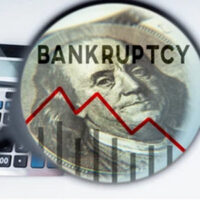SBA Loans and How Collateral on Real Estate Works in a Bankruptcy

Businesses throughout the Tampa Bay area applied for loans through the U.S. Small Business Administration (SBA) as a result of losses caused by the COVID-19 pandemic. Some types of SBA loans disbursed through the CARES Act, and which may be newly available to business owners in a second round of lending, do not require collateral. Yet many SBA loans through the Economic Injury Disaster Loan (EIDL) program do require collateral of some sort. According to the SBA, Economic Injury Disaster Loans of more than $25,000 require collateral, and loans of more than $200,000 require a personal guarantee. When it is available, the SBA will take real estate as collateral, but the SBA does not decline loans through the EIDL program due to a lack of collateral. As the SBA explains, the SBA “requires borrowers to pledge what is available.” For business owners with personal real estate who have obtained EIDL loans of more than $25,000, that means personal real estate may have been pledged as collateral for the loan.
What happens, then, if a business owner with one of these SBA loans files for bankruptcy? The answer to that question will depend in part on the type of bankruptcy filing and, ultimately, whether the real estate used as collateral was a business or a personal asset.
Bankruptcy and SBA Loans
When it comes to SBA loans—including EIDL loans and Paycheck Protection Program (PPP) loans—you should know that this debt largely will be dischargeable in a bankruptcy case. Yet if you decide to file for a business bankruptcy, it is critical to understand that bankruptcy cannot necessarily wipe out a lien on real estate that you used as collateral to secure the loan. As we noted above, EIDL loans of more than $25,000 require collateral in order for the business to receive the money. While real estate is not the only form of collateral that business owners could use to secure these loans (business owners might also use, for example, a vehicle or other assets as collateral), many have used real estate as collateral.
When a business owner offers real estate as collateral to secure an SBA loan, the government has a security interest in that real estate. For business assets, the SBA will place a UCC lien against that property, but a lien will not be placed against personal real estate owned by the guarantor. Yet that personal real estate can still be at risk in the event of a business bankruptcy.
Chapter 7 Bankruptcy and Collateral
Filing for Chapter 7 bankruptcy can result in more problems for the business if personal real estate was used as collateral in securing the loan. Since Chapter 7 bankruptcy is a type of liquidation bankruptcy, all assets will be liquidated and the business will close. Yet a Chapter 7 bankruptcy for business will not eradicate the security interest in the loan, or the real estate collateral. In situations where an SBA loan borrower defaults on an EIDL loan for which real estate was offered as collateral, the government could be able to institute a foreclosure on the real estate.
It will be important to work with a bankruptcy lawyer to determine whether you could make an offer in compromise or consider other options as alternatives to losing the real estate.
Chapter 11 Bankruptcy and SBA Loan Collateral
With a Chapter 11 bankruptcy filing, the issue of real estate collateral likely will not be as problematic for the business owner since this type of bankruptcy allows for a reorganization or restructuring of debt. In this type of bankruptcy filing, a business may be able to modify the terms of the SBA loan so that they are ultimately fulfilled by the end of the Chapter 11 bankruptcy case. As such, the SBA will not take steps to recover the money borrowed through repossession or foreclosure of the real estate offered as collateral.
Contact a Bankruptcy Attorney in Tampa for More Information
If you received an SBA loan and are considering bankruptcy, it is important to discuss the particular facts of your situation with a Tampa bankruptcy attorney and to determine the ramifications for any real estate or other assets offered as collateral. Contact Samantha L. Dammer to learn more about how collateral or personal guarantees can affect your business bankruptcy case when you have an SBA loan.
